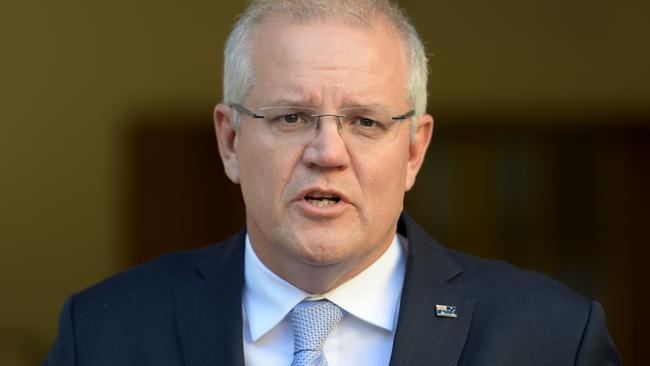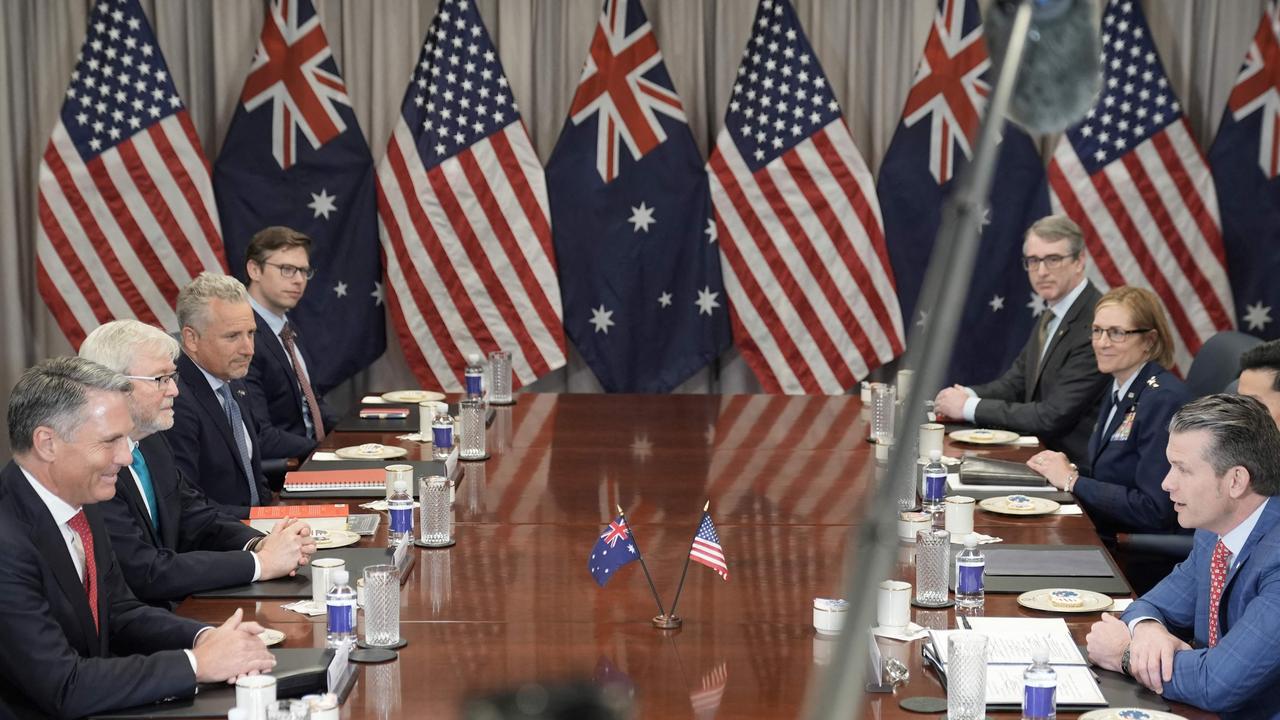Coalition’s big stick for energy firms at the ready
The Morrison government is preparing to revive its shelved energy laws.

Energy companies will be compelled to cut wholesale prices and guarantee supply as the re-elected Morrison government prepares to revive the “big stick” divestment laws it was forced to shelve this year.
State governments will also face mounting pressure to fast-track approvals for new generation projects underwritten by the federal government and open up more gas supply.
In an interview with The Australian, Energy Minister Angus Taylor revealed the “big stick laws”, which energy companies had labelled draconian, would be a priority when parliament returned, expected to be the first week of July.
He said failure by state governments to act on power supply would risk “dire consequences”, including a new exodus of manufacturing operations and the loss of industrial jobs.
The move will alarm energy bosses who had expected the government would permanently ditch the proposed laws, having pulled them after a failed attempt to pass legislation in March.
“I can tell you it is a parliamentary priority — it should be no surprise,” Mr Taylor said.
“It is our policy, we took it to the election, it has been through the partyroom, and it has been introduced to parliament.
“This is a broad-ranging piece of legislation … the divestment powers are at the pointy end … but it is also about prohibitive actions, manipulation of wholesale markets, price gouging in the retail markets and derivatives market.”
The proposed Treasury Laws Amendment (Prohibiting Energy Market Misconduct) Bill 2018, which is opposed by Labor and the Greens, would give the government unprecedented powers to seek divestment of generation assets as a last resort.
Nationals MPs threatened to revolt in March when the legislation was pulled and demanded it be brought back for a vote in the last sitting week before the poll.
Energy companies criticised the proposed laws, with one of the big three, AGL, saying they were “extreme and arbitrary”.
Mr Taylor said the government planned to revive them now that it had a majority in the lower house and a potentially less hostile Senate.
The Coalition will require only four crossbench senators to pass legislation opposed by Labor and the Greens. Centre Alliance had supported the “big stick” laws in the lower house, suggesting the party’s two senators would be on board. One Nation is also expected to support it. Australian Conservatives’ Cory Bernardi, a former Liberal senator, also remains on the crossbench.
Energy chiefs, meeting yesterday in Brisbane at an annual oil and gas conference, repeated their concerns about the “big stick” laws. Origin chief executive Frank Calabria said: “If it’s designed to break up energy companies, I don’t think that’s the way to go about achieving lower prices and better outcomes for customers. I don’t feel it serves customers well.”
Mr Taylor issued a warning to recalcitrant state governments that failure to increase gas and dispatchable electricity supply was a critical issue.
He said he would be seeking support from state governments to fast-track approvals for the construction of new generation, including coal. A shortlist of 12 projects providing an extra 4000 megawatts into the national electricity market was already under consideration for federal government underwriting.
“We will be working with every state government to get more supply into the market,” Mr Taylor said. “Approvals will be crucial … this is also a real priority. If they want lower prices and more supply, they need to work with us on the approvals. We want to work with them, not against them.”
Mr Taylor has signalled the government’s intention to expand the political argument from retail prices, which it hopes will begin to come down after July when new Australian Competition and Consumer Commission rules and a price cap kick in, to the supply side.
“I will be also pointing out that failure to get more supply of electricity and gas is likely to be dire in the coming years,” he said. “If a state refuses to put more gas supply and dispatchable electricity into the market, then they need to wear the accountability with their constituencies and businesses.
“The consequences are clear … the people in those states will have to pay more for gas, they will have to pay more for electricity.”
Mr Taylor said industries moving offshore would continue if supply was not urgently addressed. “There is a general concern among energy-intensive industries that if we aren’t able to get more supply and competition into the market, we will shed those jobs,” he said. “The loss of industry and the offshoring of industry that has happened historically is something we want to prevent.”
He singled out Victoria for its refusal to increase both gas and electricity supply. “If Victoria continues to refuse to get more supply of electricity and gas into the market, then industry and households will pay the price,” he said.
“They have had a moratorium for many years and it has done enormous damage.”




